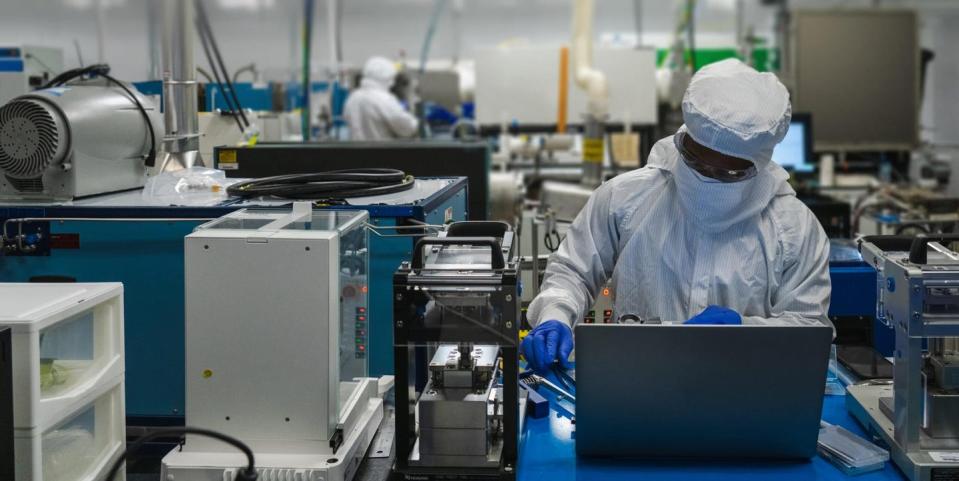How Solid-State EV Batteries May Lick the Fast-Charging Degradation Problem

Solid-state batteries hold a lot of promises for EVs, of reduced complexity, increased safety, and less degradation when repeatedly subjected to fast charging.
QuantumScape data indicates its solid-state batteries—after 400 cycles of 10 to 80 percent fast charging (the equivalent of covering 160,000 miles)—retain over 80 percent of their capacity.
Some analysts question the robustness of solid-state batteries, especially given their dependance on ceramic electrolytes.
Solid-state batteries, with no liquid electrolyte, have been (like fleets of hydrogen cars) just around the corner for a long time. But commercialization is finally approaching, the companies say, and along with advantages over traditional lithium-ion in safety, weight and energy density, add a potential ability to fast-charge regularly with reduced battery damage.
The San Jose, California-based QuantumScape recently released data indicating that its battery cells with ceramic solid-electrolyte separators (made from what it said are “earth-abundant materials”) had gone through 400 cycles of 10 to 80 percent fast charging (the equivalent of covering 160,000 miles). And they retain, according to QuantumScape Chief Marketing Officer Asim Hussain, “well over 80 percent of their capacity at a variety of temperatures.” These temperatures ranged from 25 degrees Centigrade (77 degrees Fahrenheit) to 45 Centigrade (113 Fahrenheit), the company said.
He said that the company is aiming for such charges to take 15 minutes, compared to 20 to 25 minutes for conventional lithium-ion power cells. The latter, Hussain said, “are just not designed for repeated fast charging.”
According to a QuantumScape white paper, “Repeated fast-charging [of legacy lithium-ion batteries] results in degraded cycle life due to multiple effects: loss of lithium due to reactions on the surface of the graphite particles in the anode, as well as accelerated degradation stemming from the elevated temperatures that result from the high current densities required for fast charge in energy-dense cells.”
QuantumScape is targeting 2023 to produce battery samples that can be used in test cars, and 2024 to 2025 for commercialization, which it defines as cells that can be sold to a third party.

Autoweek wrote in April about battery degradation in today’s EVs when they reach high mileage, such as a 200,000-mile Tesla Model S with just 100 miles of effective range. It’s a real phenomenon, that maybe solid-state can address. BMW and Ford are major investors in Colorado-based solid-state company Solid Power, which claims a 50 to 80 percent increase in battery energy density over conventional li-ion.

 Yahoo Autos
Yahoo Autos 